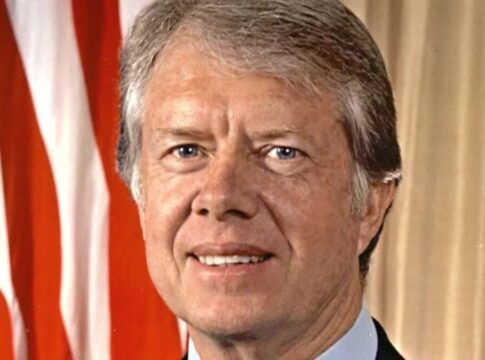In a heartfelt message, President Abdel Fattah El-Sisi extended his deepest condolences to the family of former U.S. President Jimmy Carter, who passed away at the venerable age of 100. Carter’s enduring legacy of humanitarian efforts and diplomacy resonates globally, particularly through his pivotal role in facilitating the peace treaty between Egypt and Israel. This historical achievement not only solidified Carter’s status as a champion of peace but also left an indelible imprint on international politics.
Carter’s foreign policy, characterized by a steadfast commitment to human rights, laid the groundwork for the historic 1978 Camp David Accords. These negotiations, which saw Israeli Prime Minister Menachem Begin and Egyptian President Anwar Sadat agree to peace in exchange for the Sinai Peninsula’s return, exemplified Carter’s vision of diplomacy as a tool for global harmony. In recognition of his unwavering efforts, Carter was awarded the Nobel Peace Prize in 2002 for his dedication to peaceful conflict resolution and the promotion of human rights.
Even after leaving office, Carter’s influence continued to grow. He founded the Carter Center in 1982, which has since played a crucial role in monitoring over 110 elections across 39 countries, striving to uphold the integrity of democratic processes globally. The center’s work extended to health initiatives, most notably its efforts to eradicate Guinea-worm disease, which saw cases plummet from 3.5 million in 1986 to just 13 in 2023, showcasing Carter’s enduring commitment to humanitarian causes.
Dr. Randall Balmer, a professor of religion at Dartmouth College, highlighted Carter’s unique approach to diplomacy. “Carter’s personal brand of diplomacy, deeply rooted in his devout Christian beliefs, often set the stage for dialogue in regions where others failed,” Balmer noted. This personal touch sometimes clashed with the formal policies of his successors, yet it undeniably underscored Carter’s enduring dedication to peace and justice.
Carter’s activism extended well into his later years, as he continued to voice concerns on international matters, such as criticizing the U.S. withdrawal from the Iran nuclear agreement in 2018. His perspective on maintaining international agreements as binding commitments underscored his belief in principled diplomacy.
As the world mourns the loss of a leader who epitomized the ideals of peace and humanitarian service, it is clear that Carter’s legacy will continue to inspire. His life’s work remains a testament to the power of diplomacy driven by compassion and justice, a beacon of hope in an increasingly complex world.



